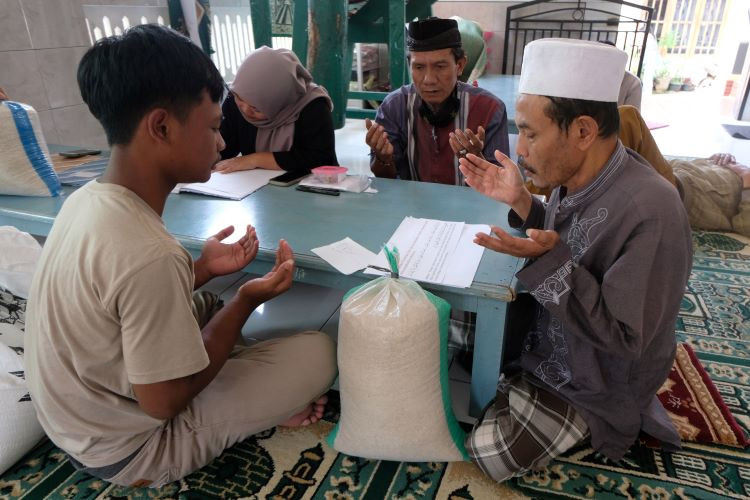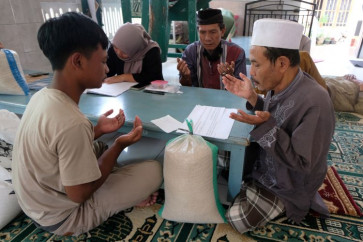Popular Reads
Top Results
Can't find what you're looking for?
View all search resultsPopular Reads
Top Results
Can't find what you're looking for?
View all search resultsStop viewing zakat as merely an instrument
The obligatory nature of zakat implies that poverty alleviation policies should also be mandatory and should not merely follow the whims of those in power.
Change text size
Gift Premium Articles
to Anyone
D
uring Ramadan, the practice of zakat, a form of almsgiving, is an important ritual for Muslims. The promise of multiplied rewards inspires countless individuals to fulfill their obligations of zakat fitrah and zakat maal. However, a recurring question often arises: How is the national zakat collection progressing?
A study by Firdaus et al. in 2012 highlighted that the potential national zakat collection reached Rp 217 trillion (US$14 billion), equivalent to 3.4 percent of Indonesia’s gross domestic product (GDP) in 2010. If the same parameters were applied to Indonesia’s GDP in 2023, the potential zakat collection could be around Rp 710 trillion.
However, when compared to the actual realization, the figures tell a different story. According to the 2023 Outlook Zakat Indonesia report by BAZNAS, the collection of zakat, infaq, shadaqah, qurban and other religious social funds only reached Rp 14.2 trillion in 2021. If we consider zakat alone, the collection was around Rp 8.4 trillion, only 1.5 percent of its potential.
The disparity between the potential and actual zakat collection raises questions. Are we overstating the potential? Is the estimation too optimistic? Or perhaps, are we overstating the role of zakat in economic development?
In Saudi Arabia, which has a mandatory zakat system that incorporates the alms tax into the state budget, zakat collection did not exceed 0.7 percent of GDP in 2023. The realization of zakat in Indonesia is still far from this, as 0.7 percent of the country’s GDP is about Rp 115 trillion.
The narrative within Islamic economic communities often seems to place the massive burden of economic development on zakat. It is as if all poverty-related issues can be single-handedly resolved through zakat. This excessive optimism, however, has yet to answer many complex questions.
For example, why do Nordic countries, according to the World Inequality Report 2023, manage to maintain a very low inequality level (Gini ratio 0.2 – 0.26) without zakat, while Saudi Arabia seems “content” with a high Gini ratio of 0.65?



















